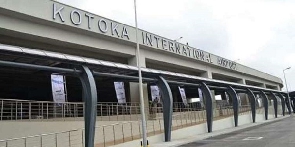“People having a measure of control over when, where and how they work. It is achieved when an individual’s right to a fulfilled life inside and outside paid work is accepted and respected as the norm to the mutual benefit of the individual, business and society.” (Barbara Pocock, “Work-Life Balance in Australia: Asia Pacific Journal of Human Resources, 2005).
Of late we have been reading, hearing, viewing (on the social media) a directive from the Presidency asking the Auditor-General to proceed on leave, having accumulated a specified number of holidays.
Unfortunately, there have been a lot of discussions (pros and cons) on the subject matter with emphasis on the “politics” of the issue at hand, losing sight of the workplace health of the operative involved and the productivity (the efficiency with which inputs are transformed into outputs) of the organization.
The primary purpose of paid annual leave is to allow and encourage every employee to renew his physical and mental capabilities and to remain a full productive employee. In some jurisdictions deductions may be made from employee’s pay where excessive tardiness or absenteeism occurs.
Some justifiable reasons one needs to take annual leave in a timely manner are: family commitments; taking care of your health; feeling stressed out; cannot concentrate anymore; decline of organization productivity levels due to your underperformance etc.
Additionally, holidays are important to employees because it increases productivity and creativity; you lower your stress level and prevent burnout; upon returning from vacation, you feel mentally refreshed and relaxed. This consequently lowers the risk of a heart disease caused by stress.
By taking annual leave, workers can reduce stress and increase happiness, which leads to reduced staff turnover and reduced absenteeism including sick leave.
In Australia Public Service an employee is entitled to four weeks of paid annual leave. And the department is committed to providing a positive work environment that supports flexible work to enable employees to balance their work and non-work commitments, where practical. Maximum accrual cannot exceed two entitlements (i.e. 8 weeks) plus the current year in Western Australia, Department of Mines, Industry Regulation and Safety.
Work-life balance policy must be encouraged within the public sector to promote a positive workplace culture and as part of wider absence management strategies and to facilitate healthy and safe working environments.
Public sector work environments that offer and support genuine opportunities for work-life balance in the workplace will benefit from the range of positive workplace outcomes which from providing flexible work arrangements, such as increased productivity, lower absenteeism rates, higher levels of employee engagement and increased innovation and creativity.
A common business problem for employers occurs when employees accrue excessive amounts of annual leave. This scenario is detrimental to both the employees and the organization, but both sides being ‘at fault’ may be the cause.
By way of “benchmarking” – thus using external and internal comparisons to plan for future improvements, Ghana Public Service may apply the guiding principles of comparing business processes and performance metrics to industry bests and best practices from other jurisdictions on the subject matter.
This then allows Ministries, Departments and Agencies (MDAs) to develop plans on how to make improvements or adapt specific best practices usually with the aim of increasing some aspect of performance at the workplace alongside ‘politics’ to some degree.
Opinions of Tuesday, 21 July 2020
Columnist: Charles Manu















